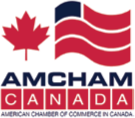Your voice for
cross-border
business

Ottawa should reconsider the Digital Services Tax
Dec 4, 2024

Opinion | By Rick Tachuk, President, AmCham Canada | December 4, 2024
The Financial Post
If anyone had any doubt the Trump 2.0 team have a bold agenda, know exactly what they want to do and are building a cabinet that will execute that clear plan, Donald Trump’s threat to impose 25 per cent tariffs on Canada and Mexico on Day One if they do not address cross-border fentanyl smuggling and illegal immigration has dispelled it.
The president-elect’s Truth Social threat did not mention the Digital Services Tax (DST). But you can bet Canada’s unilateral implementation of a DST earlier this year is just below fentanyl and illegal aliens on the new administration’s complaints list. For its own good, Canada should reconsider the tax.
The DST is a three per cent levy on revenues from various digital services, with a threshold that many experts agree is designed to target U.S. technology leaders. Though it is now in force, first payments aren’t due until June 30 of next year, which provides a useful window in which the Canadian government can reconsider it.
The DST has angered U.S. politicians and decision-makers on both sides of the political aisle. Outgoing U.S. Ambassador David Cohen expressed his “disappointment” with Ottawa’s decision to plow ahead with it, while the Biden administration’s trade representative, Katherine Tai, believes it discriminates against U.S. businesses and therefore runs contrary to Canada’s trade obligations.
The new tax, which will raise the cost of delivering various digital services, is redundant and, ultimately, unnecessary. American technology companies already pay billions of dollars in direct and indirect taxes in this country, from corporate income taxes to employer taxes to sales taxes generated from business activities. And they are engines of growth for the Canadian economy. Making services Canadians rely on more expensive works against the current policy emphasis on affordability, productivity and investment attraction. Even worse, the DST is retroactive, with the first payment capturing any revenue earned between the start of 2022 and the end of this year.
The DST’s backers point out that France, the U.K., Spain and Italy have all introduced similar levies, which is true. It’s also true, however, that Trump 1.0 responded with retaliatory measures. Though the Biden administration suspended these measures when it took over they could be reintroduced at any time. More to the point, none of these countries depends on the U.S. market nearly as much as Canada does. Good sense says it’s best not to raise the retaliatory ire of the market that buys nearly 80 per cent of your exports.
Candidate Trump was very clear that America First will be the cornerstone of his administration’s economic policies. With nothing more than an executive order, he can reopen “Section 301” investigations on matters like the DST. History suggests Trump 2.0 will be at least as bold with such orders as Trump 1.0 was.
Earlier this month, Ontario Premier Doug Ford urged the federal government to rethink implementation of the DST, noting that both Democrats and Republicans oppose it. Proceeding with it, he said, could “put millions of Canadian jobs and our historical economic partnerships with the U.S. at risk.” And this was before the election result was known.
It might be tempting for Canadian trade negotiators simply to file the DST away in their drawer of negotiating chips. But that strategy could prove costly to leading sectors of the Canadian economy should the U.S. go ahead with retaliation right away, as the president-elect is threatening to do.
Around the world, governments are busy trying to plan for dealing with the second Trump administration. The very real threat of aggressive retaliation that its advent brings gives Ottawa an off-ramp to hit pause on the DST. For the wider good of North American prosperity, that’s what it should do.
Rick Tachuk is president of the American Chamber of Commerce in Canada.
Published by The Financial Post - December 4, 2024
(Photo by DENIS CHARLET/AFP via Getty Images)


